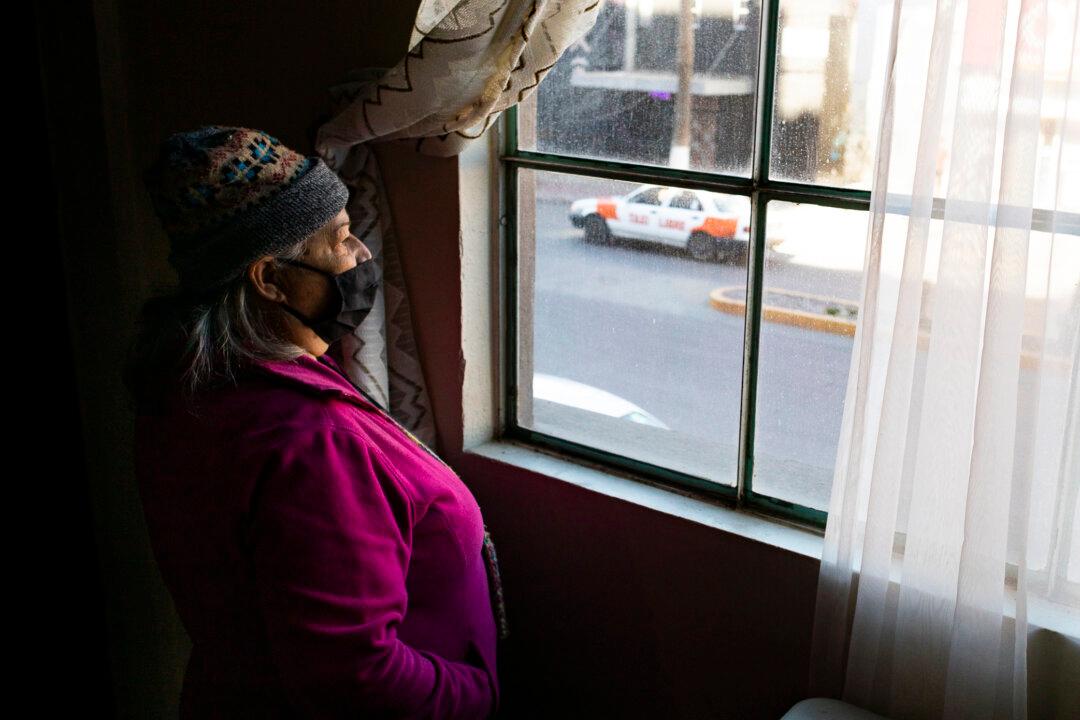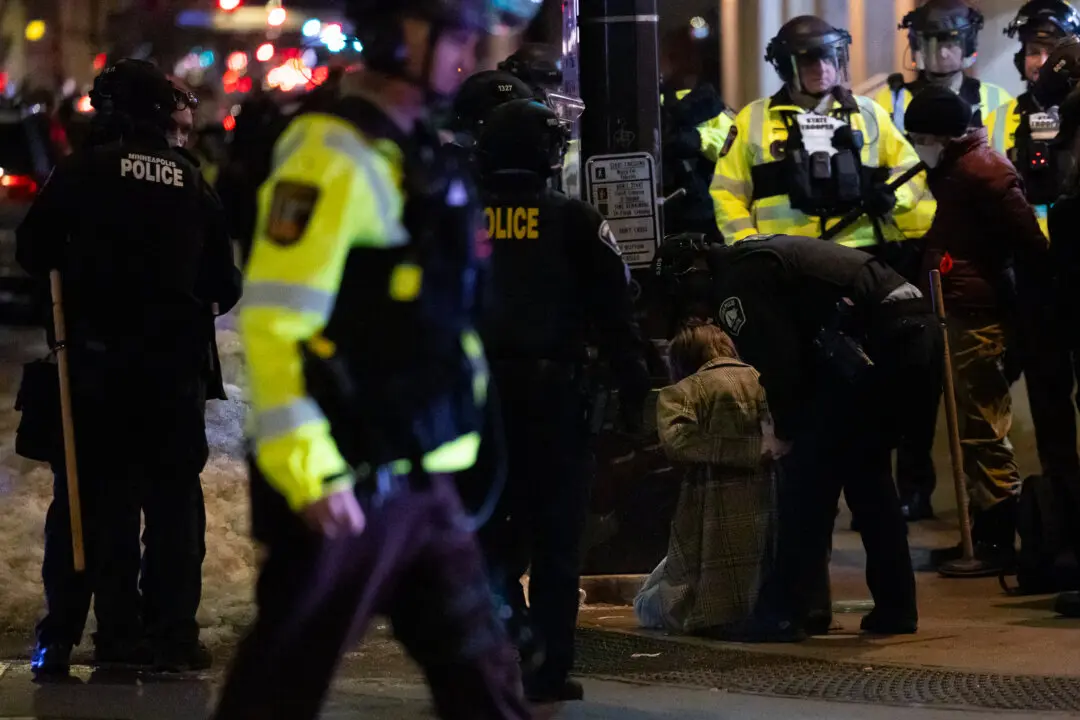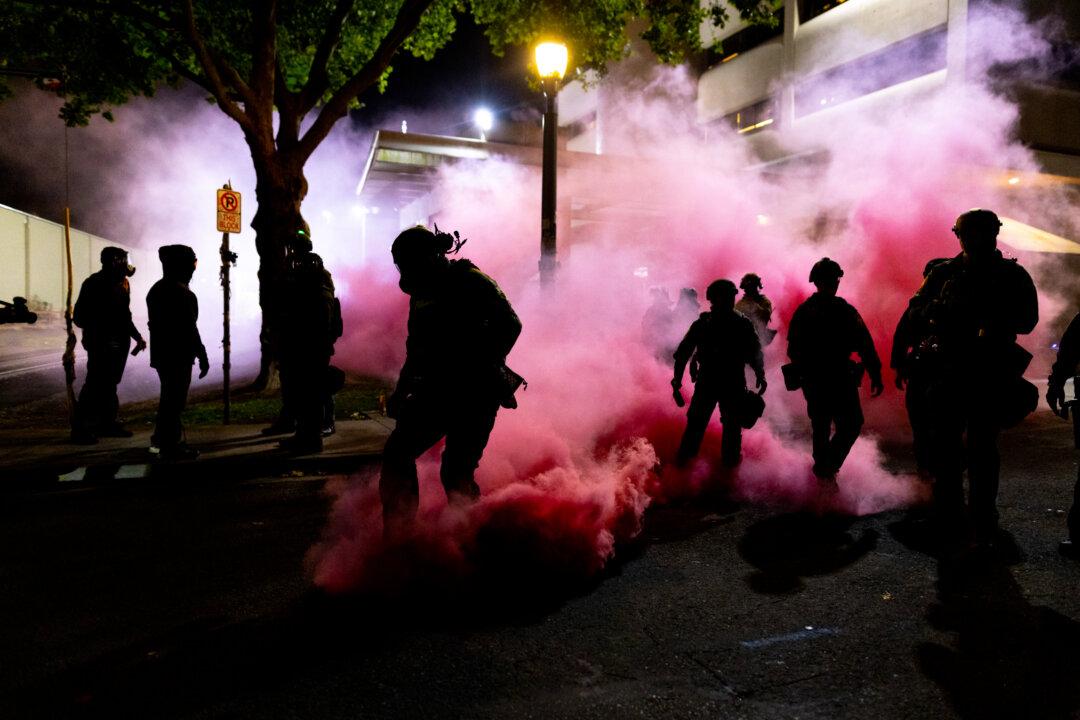TIJUANA, Mexico—Just a 10- to 15-minute walk from the U.S. border, women wearing skintight clothing and very high-heeled shoes stand holding phones near the walls of bars and brothels. It’s 11:30 a.m., and a drunken man who appears to be a young American in his mid-twenties looks down from a restaurant patio and loudly calls out to a group of prostitutes standing just below on the sidewalk.
In Zona Norte, Tijuana’s red-light district, sex work is legal within the neighborhood’s three-block radius. However, locals say law enforcement is lax in the area, despite the heavy presence of authorities such as the federal police, ministerial police, tourist police, state police, municipal police, and the Mexican army, who all conduct frequent patrols in Zona Norte.




